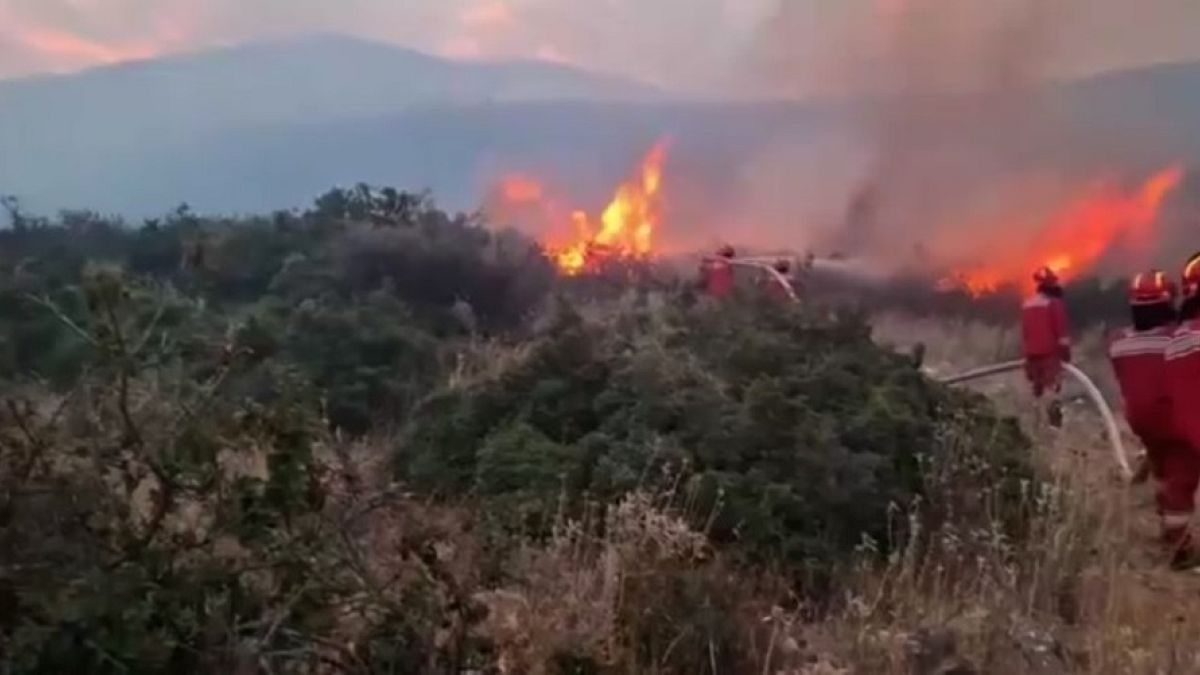

In recent weeks, various regions across Europe have faced significant environmental challenges, highlighting the pressing effects of climate change and natural phenomena on both local communities and ecosystems. As we explore these developments, a common thread of resilience and collaboration emerges amid the trials.
Albania and Bulgaria find themselves grappling with intense wildfires that have caused considerable destruction to property and natural landscapes. Thousands of acres have been devastated, necessitating international assistance. Both countries have reached out to the European Union for aid in combating these fires, demonstrating a collective approach to mitigating the damage. This collaboration illustrates the importance of unity and shared resources in times of environmental crisis.
Similarly, Greece and Turkey have been dealing with their own wildfire emergencies, exacerbated by high temperatures and strong winds. Efforts to control the flames have seen support from neighboring countries, with Czech firefighters and Italian aircraft joining the Greek rescue operations. The Greek prime minister commended the rescue workers for their valiant efforts in dealing with the fires. These cross-border responses underscore a spirit of cooperation that is crucial in addressing widespread natural disasters.
Meanwhile, the coasts of Spain face another kind of environmental challenge. The invasion of ‘Rugulopteryx okamurae’, an Asian seaweed, threatens the biodiversity of the region. This invasive species has accumulated on the beaches of the Strait of Gibraltar and the southern coast of Spain, raising concerns among ecologists. While less visible than wildfires, this invasion exemplifies the subtle yet profound impacts of ecological disturbances, urging the need for vigilant conservation efforts to protect indigenous species and ecosystems.
The state of the world’s oceans is also under scrutiny, with scientists warning of a potentially critical tipping point due to prolonged marine heatwaves. This issue signals a transformative shift in oceanic conditions, which may now represent a ‘new normal.’ The consequences of such changes are profound, affecting marine biodiversity and global climate patterns. These developments remind us of the intricate connections between ocean health and broader environmental stability.
In another dimension of climate-related concerns, a report by the Autonomy Institute projects a significant rise in UK food prices, a phenomenon referred to as ‘climateflation.’ According to the report, extreme weather conditions could drive up prices by more than a third by 2050, putting substantial pressure on household budgets and risking the economic well-being of nearly a million people. This forecast emphasizes the need for preemptive government interventions and adaptive strategies to safeguard food security amidst changing climate realities.
In conclusion, these diverse environmental challenges call for a multifaceted response, blending immediate action with long-term strategies. International cooperation, scientific research, and policy adjustments are vital to effectively navigating these complex issues. As we respond to these challenges, there lies an opportunity to foster resilience, strengthening our collective commitment to preserving the planet for future generations. Through unity and foresight, we can weather these changes and emerge stronger and more aware of our role in shaping a sustainable world.
Source: {link}
